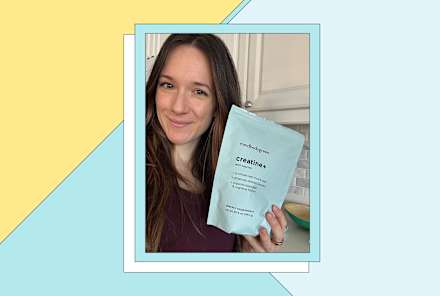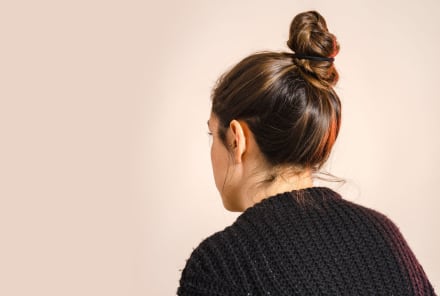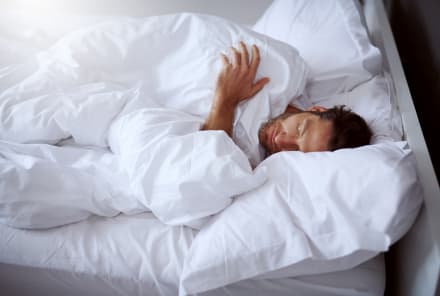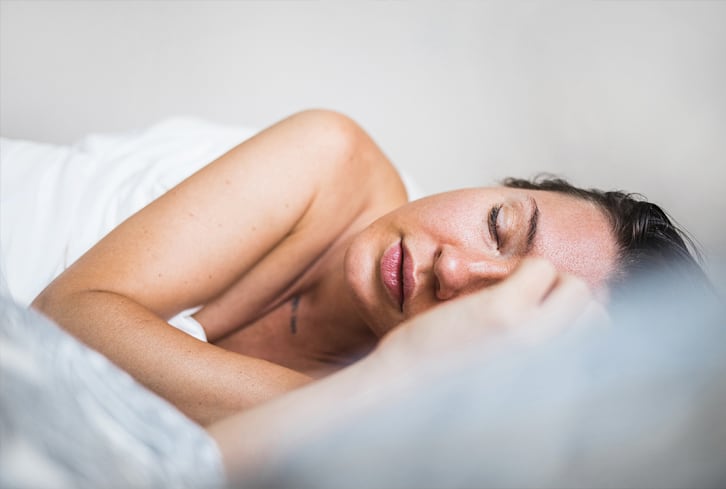Advertisement
Think Twice Before Pulling That All-Nighter, Study Says—Here's Why


When we think about the things we can do to live well longer, getting consistent, quality sleep is definitely high up on the list. And vice versa, according to research published in the Journal of Neuroscience1, sleep deprivation can actually age your brain. Here's what the study found.
Studying the impact of sleep deprivation
For this study, researchers wanted to assess the relationships between brain age and sleep deprivation. They recruited 134 people with a mean age of 25 to undergo different sleep conditions, with some going through total sleep deprivation, and others only partial.
The study authors define total sleep deprivation as over 24 hours of prolonged wakefulness. The partial sleep deprivation groups, meanwhile, slept for three or five hours a night.
Following the night of sleep (or lack thereof), participants had MRIs to look at their brains, where the study authors observed that those in the total sleep deprivation group showed an increased brain age by one to two years compared to their baseline MRIs.
The same effects were not observed in the partial sleep deprivation groups, which is reassuring if you're prone to missing a few hours of sleep here and there.
Plus, those participants in the total sleep deprivation group were able to get their brains back to baseline age once they got a full night of sleep.
"Together," the study authors say, "the convergent findings indicate that acute total sleep loss changes brain morphology in an aging-like direction in young participants and that these changes are reversible by recovery sleep."
What to do about it
It comes as good news that you can effectively reverse the impact of total sleep deprivation by getting a full night's sleep ASAP. Ideally, you're not staying up all night to begin with, but extenuating circumstances can happen, so it's then important to get back on track.
Plus, even if you only missed a few hours of sleep, it can definitely impact your energy and mood, even if those changes aren't observable in the brain. In short: sleep is essential!
Ensuring you're going to bed and waking up at the same times every day is one of the easiest ways to help your body know when to get sleepy, and know when to wake up.
On top of that, rules of thumb like exercising regularly, limiting stress, and taking a quality, research-backed sleep supplement can all help you catch enough zzz's. (Here are our absolute favorite sleep supplements if you're in the market.)
The takeaway
If you go a full night without a wink of sleep, you can be sure you're going to feel it the next day—and your brain might even show it. But with your go-to sleep tools handy and a cleared calendar to catch up on some shut eye, this research says you can help get your brain back to baseline afterwards.

How Gut Health Could Impact Your Parkinson's Risk, Study Reveals
Gretchen Lidicker, M.S.

How Gut Health Could Impact Your Parkinson's Risk, Study Reveals
Gretchen Lidicker, M.S.

How Gut Health Could Impact Your Parkinson's Risk, Study Reveals
Gretchen Lidicker, M.S.

How Gut Health Could Impact Your Parkinson's Risk, Study Reveals
Gretchen Lidicker, M.S.
















